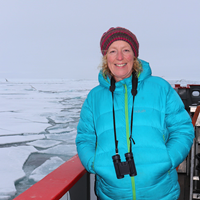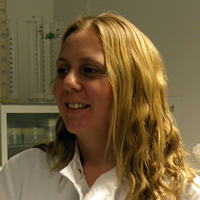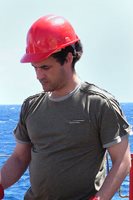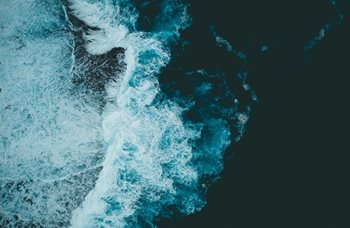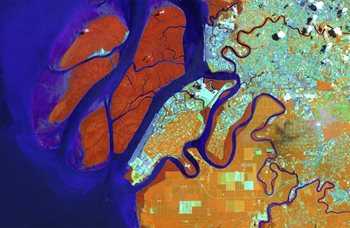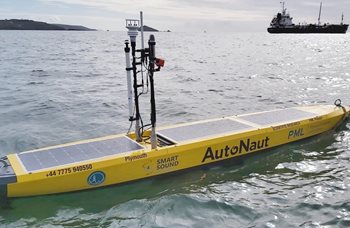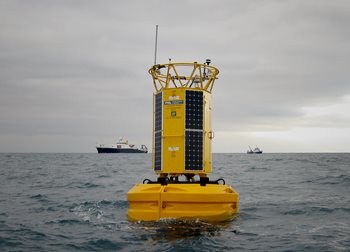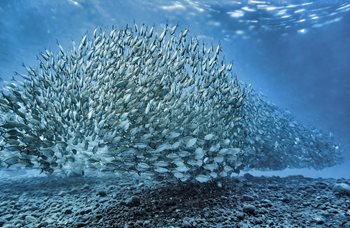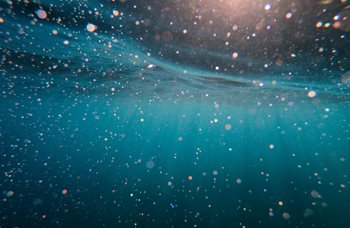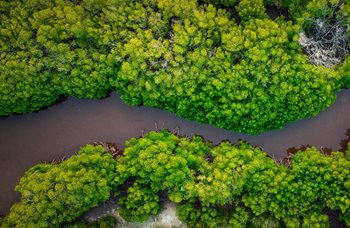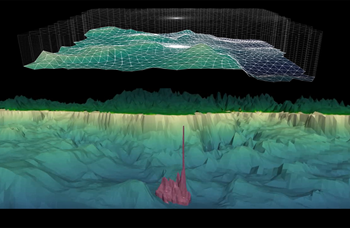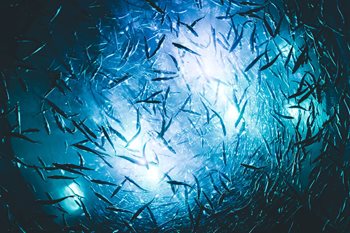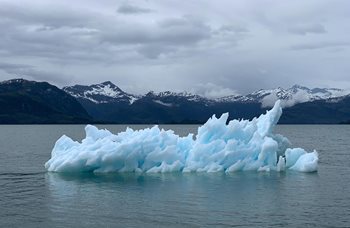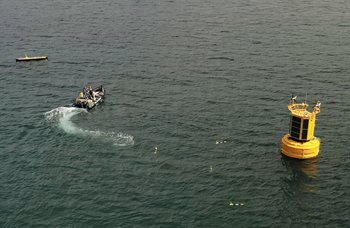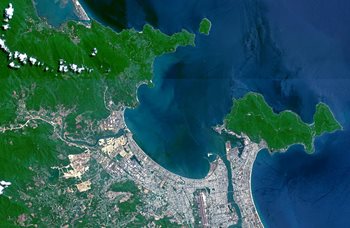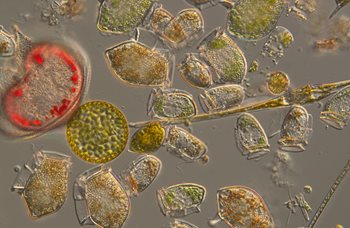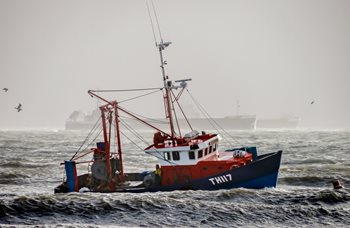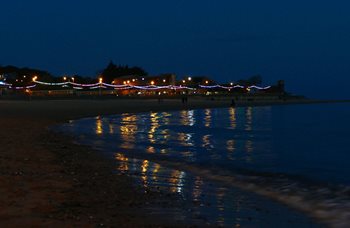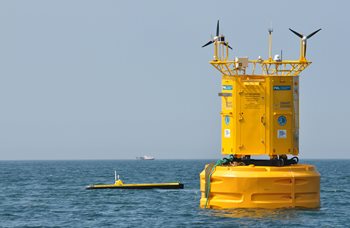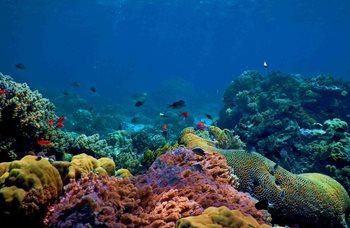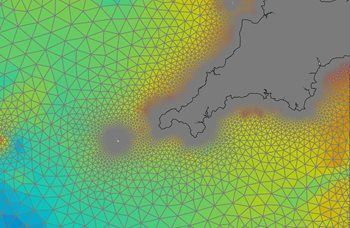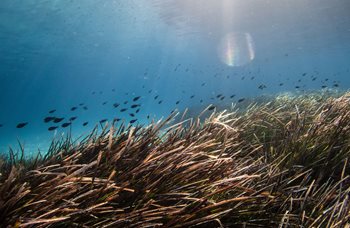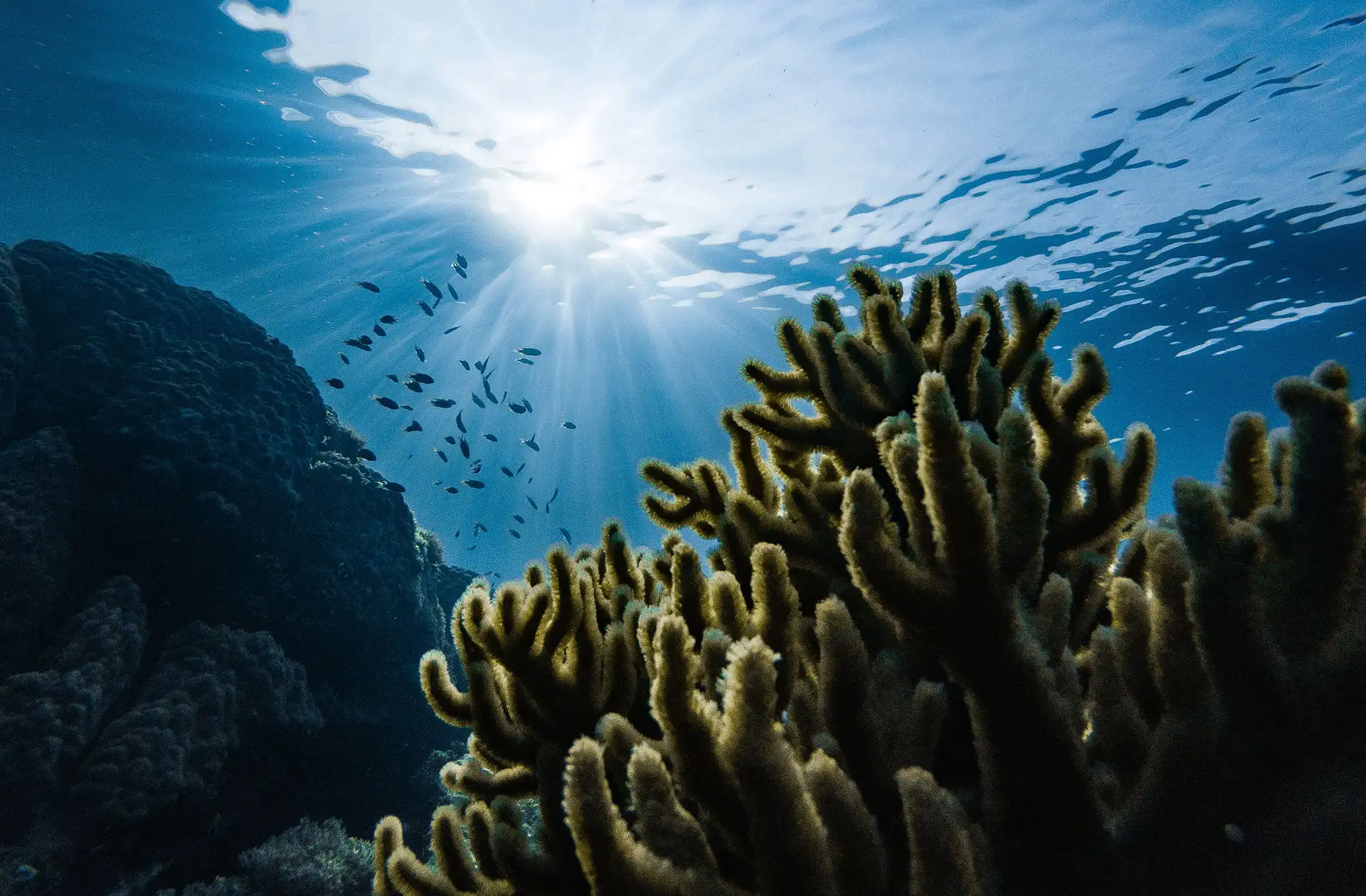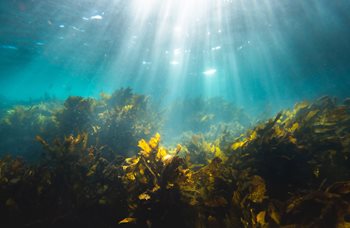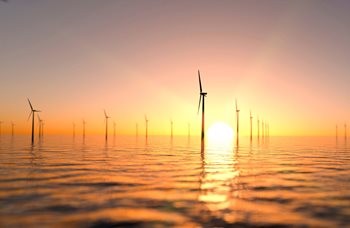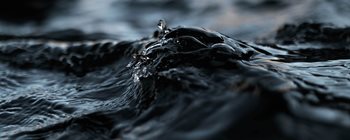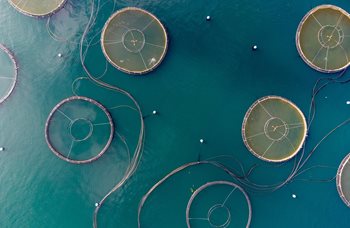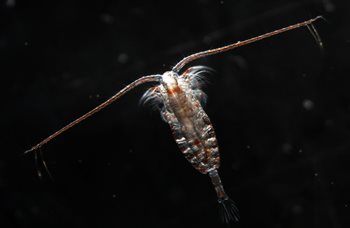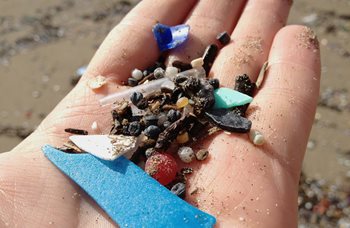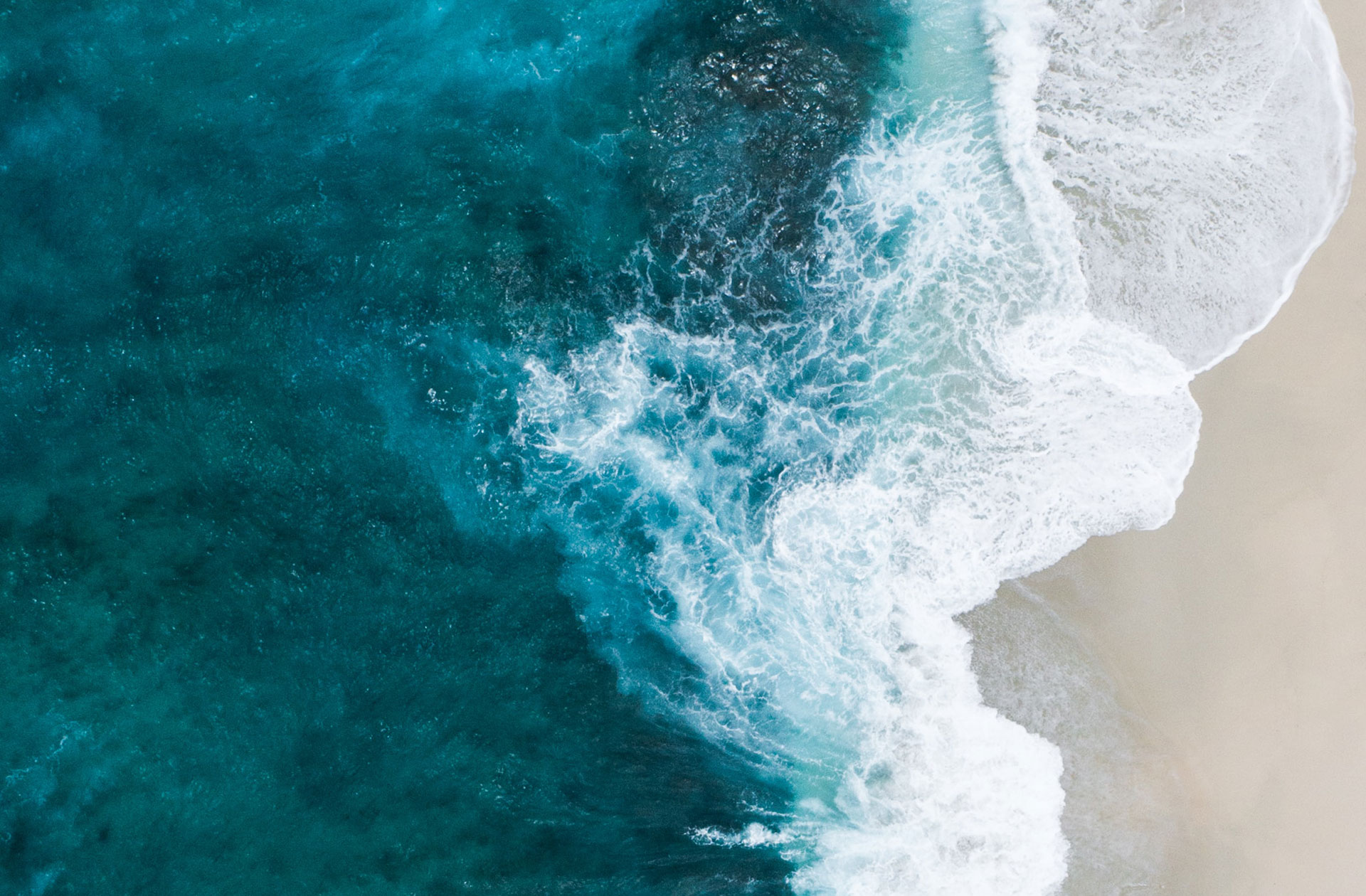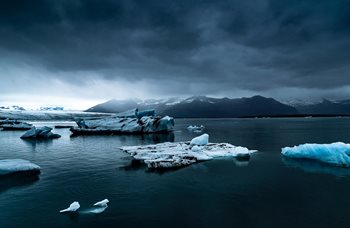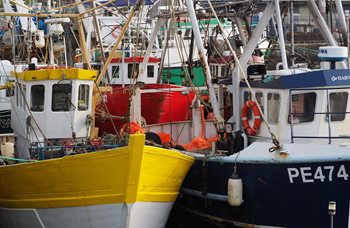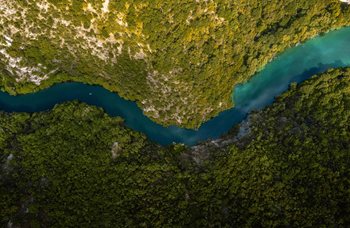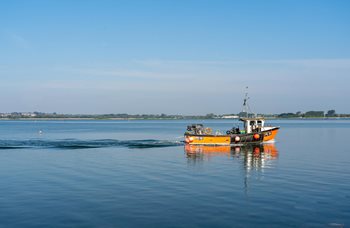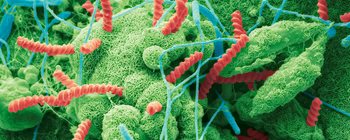Science To Impact Area
Cleaner seas
The marine environment is impacted by human activities which have variable effects on the health of the ocean and its capacity to provide for us. Whilst some impacts are very visible, others are less obvious, and whilst some are benign, others are very harmful.
The requirements for PML-led action are as diverse as the problem being addressed. Our stakeholder groups include international and local legislators who utilise our observations, model outputs and the expertise of our staff to interpret and advise on the complexity of marine systems under pressure. PML contributes to the activities of governmental and intergovernmental organisations who advise on the control of allochthonous inputs, conservation, management and sustainability goals. Non-governmental organisations, local authorities and tourism boards all utilise PML outputs to inform on the quality and function of water bodies used for recreation, aquaculture and other commercial activities which include the shipping industry, armed forces and port authorities. The “blue space” is a relatively recent concept which advocates that closeness to the marine environment is beneficial to health and wellbeing and therefore engenders a link between PML and public health organisations and practitioners.
Exemplar activities which highlight how cross-disciplinary teams from PML unite to address environmental concerns include:
- Assessments of carbon sequestration and blue carbon at the scale of the north-east Atlantic Ocean.
- Highlighting the importance of ocean and coastal processes on the atmospheric flux of greenhouse gases.
- Providing climate change projections to advise the MMO in their publication of the South-West Marine Plan.
- Investigating the transport of land-derived carbon and nutrients between catchment and coast. Engagement with local stakeholders informs activities ranging from peatland restoration, flood defence, re-naturalisation of farmland and agricultural activities to retain soil carbon and reduce nutrient loss;
- Development and production of observation systems, models and risk maps for cholera in the northern Indian Ocean which will support evidence-based policy decisions and actions to inform local communities, governments, health services, intergovernmental agencies and policy makers;
- Providing techniques for the identification of pollution (oil, litter, nutrients) from satellite data which when integrated with models, produce forecast and hindcast predictions of the source and direction of pollution.
- The integration of sustained, multiplatform observing networks and marine ecosystem models to improve operational short-term and seasonal predictions of ecosystem stressors (e.g. anoxia, ocean acidification and harmful algal blooms).
PML Project pages
-
Addressing Challenges of Coastal Communities through Ocean Research for Developing Economies (ACCORD)
-
AgZero+
-
Artificial Light in Coastal Ecosystems (ALICE)
-
Atlantic Ecosystem Assessment, Forecasting and Sustainability (AtlantECO)
-
Biological Pump and Carbon Exchange Processes (BICEP)
-
BIO-PLASTIC-RISK: Biodegradable Bioplastics - Assessing Environmental Risk
-
Changing Arctic Carbon cycle in the cOastal Ocean Near-shore (CACOON)
-
Copernicus Evolution: Research for harmonised and Transitional water Observation (CERTO)
-
Earth observation for sustainable development (EO4SD) - marine resources
-
FOCUS: Future States of the global Coastal ocean: Understanding for Solutions
-
FRONTAL: Satellite FRONTs for detection of Anthropogenic plastic Litter
-
FutureMARES: Climate Change and Future Marine Ecosystem Services and Biodiversity
-
Land ocean carbon transfer (LOCATE)
-
Marine plastic pollution in the Arctic
-
Oceanus
-
Pathways and emissions of climate-relevant trace gases in a changing Arctic Ocean (PETRA)
-
Pathways Of Dispersal for Cholera And Solution Tools (PODCAST)
-
ProBleu: Promoting ocean and water literacy in school communities
-
Rehabilitation of Vibrio-infested waters of Lake Vembanad, funded under the India-UK Water Quality programme (REVIVAL)
-
Removing marine microplastics with mussel power
-
South Asian Nitrogen Hub
-
The Economics of Marine Plastic Pollution: What are the Benefits of International Cooperation
-
TYRE-LOSS: Lost at Sea - where are all the tyre particles?
-
WADIM: Water-Associated infectious Diseases in India: digital Management tools
-
Western Channel Observatory (WCO)
Other projects
- HyperDrone
- Copernicus Global Land Operations (CGLOPS)
- SIMPLER
- MARINe DNA
- MIXITIN
Selected publications
Martinez-Vicente, V; Clark, JR; Corradi, P; Aliani, S; Arias, M; Bochow, M; et al. 2019. Measuring Marine Plastic Debris from Space: Initial Assessment of Observation Requirements. Remote Sensing.
Muller-Karanassos, C; Arundel, W; Lindeque, PK; Vance, T; Turner, A; Cole, MJ. 2020 Environmental concentrations of antifouling paint particles are toxic to sediment-dwelling invertebrates. Environmental Pollution.
Beaumont, NJ; Aanesen, M; Austen, MC; Börger, T; Clark, JR; Cole, MJ; Hooper, TL; Lindeque, PK; Pascoe, CK; Wyles, KJ. 2019 Global ecological, social and economic impacts of marine plastic. Marine Pollution Bulletin.
Williamson, JL; Tye, A; Lapworth, DJ; Monteith, D; Sanders, R; Mayor, DJ; et al. 2021. Landscape controls on riverine export of dissolved organic carbon from Great Britain. Biogeochemistry.
Kitidis, V; Tait, K; Nunes, J; Brown, IJ; Woodward, EMS; Harris, C; Sabadel, AJM; Sivyer, DB; Silburn, B; Kröger, S. 2017 Seasonal benthic nitrogen cycling in a temperate shelf sea: the Celtic Sea. Biogeochemistry.
Williamson, P; Turley, CM. 2016 How can we minimise negative effects on ocean health? Policy card E1-E2. AVOID and UKOA programmes, 2pp.
Broszeit, S; Beaumont, NJ; Uyarra, MC; Heiskanen, AS; Frost, MT; Somerfield, PJ; Rossberg, AG; Teixeira, H; Austen, MC. 2017. What can indicators of good environmental status tell us about ecosystem services?: Reducing efforts and increasing cost-effectiveness by reapplying biodiversity indicator data. Ecological Indicators.
Turley, C., Racault, M.-F., Roberts, J.M., Scott, B.E., Sharples, J., Thiele, T., Williams, R.G. and Williamson P. 2021. Why the Ocean Matters in Climate Negotiations. COP26 Universities Network Briefing.
People who work in this area of research
Dr Yuri Artioli
Marine Ecosystem Modeller
yuti@pml.ac.uk
Professor Atkinson
Marine Ecologist
aat@pml.ac.uk
Dr Elizabeth C. Atwood
Earth Observation Data Analyst
liat@pml.ac.uk
Professor Nicola Beaumont
Head of Science - Sea and Society
nijb@pml.ac.uk
Professor Jerry Blackford
Head of Science: Marine Systems Modelling
jcb@pml.ac.uk
Dr Zara Botterell
PhD Fellow
zab@pml.ac.uk
Dr Sarah Breimann
Analytical chemist
sabr@pml.ac.uk
Dr Stefanie Broszeit
Senior marine ecosystem services scientist
stbr@pml.ac.uk
Dr James Clark
Marine Ecosystem Modeller
jcl@pml.ac.uk
Dr Dan Clewley
Senior Research Software Engineer
dac@pml.ac.uk
Dr Matthew Cole
Senior Marine Ecologist and Ecotoxicologist
mcol@pml.ac.uk
Dr Rachel Coppock
Marine Ecologist
rac@pml.ac.uk
Elaine Fileman
Plankton Ecologist
ese@pml.ac.uk
Professor Kevin Flynn
Plankton ecophysiology modeller
kjf@pml.ac.uk
Dr Elizabeth Gabe-Thomas
Environmental Psychologist
egt@pml.ac.uk
Dr Samantha Garrard
Marine Ecosystem Services Researcher
sga@pml.ac.uk
Dr Frances E. Hopkins
Marine biogeochemist
fhop@pml.ac.uk
William Jay
Geospatial Research Software Engineer
wja@pml.ac.uk
Dr Vassilis Kitidis
Marine biogeochemist
vak@pml.ac.uk
Dr Gemma Kulk
Phytoplankton physiologist
gku@pml.ac.uk
Dr Andrey Kurekin
Marine Earth Observation Scientist
anku@pml.ac.uk
Dr Gennadi Lessin
Marine System Modeller
gle@pml.ac.uk
Professor Pennie Lindeque
Head of Science: Marine Ecology and Biodiversity
pkw@pml.ac.uk
Dr Océane Marcone
Social Science Researcher
ocm@pml.ac.uk
Dr Victor Martinez-Vicente
Bio-optical oceanographer
vmv@pml.ac.uk
Aser Mata
Earth Observation Scientist
asm@pml.ac.uk
Hayley McIlwraith
PhD student
Thomas Mesher
Macrofaunal Ecologist
thm@pml.ac.uk
Joana Nunes
Benthic Ecologist
jonu@pml.ac.uk
Christine Pascoe
Ecotoxicologist
ckh@pml.ac.uk
Professor Ana M Queirós
Marine and climate change ecologist
anqu@pml.ac.uk
Professor Rees
Marine biogeochemist
apre@pml.ac.uk
Dr Olivia Rendón
Senior Environmental Economist
ore@pml.ac.uk
Dr Sevrine Sailley
Ecosystem modeller
sesa@pml.ac.uk
Dr Shubha Sathyendranath
Merit Remote Sensing Scientist
ssat@pml.ac.uk
Professor Stefan Simis
Earth Observation Scientist (inland/coastal waters)
stsi@pml.ac.uk
Professor Tim Smyth
Head of Science - Marine Biogeochemistry and Observations
tjsm@pml.ac.uk
Dr Karen Tait
Microbial Ecologist
ktait@pml.ac.uk
Dr Liz Talbot
Marine Ecologist
sat@pml.ac.uk
Dr Ricardo Torres
Systems Modeller Data Assimilation
rito@pml.ac.uk
Chris Walkinshaw
PhD Student
chw@pml.ac.uk
Dr Mark Warren
Remote sensing scientist
mark1@pml.ac.uk
Professor Steve Widdicombe
Director of Science and Deputy Chief Executive
E. Malcolm S. Woodward
Chemical oceanographer
emsw@pml.ac.uk











